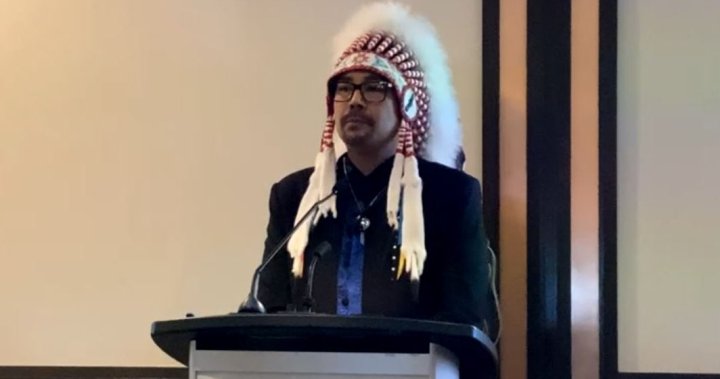The chief of Lake St. Martin First Nation in Manitoba, Christopher Traverse, was charged with sexual assault, sexual interference, and making and possessing child pornography. Winnipeg police arrested Traverse on February 1, and the victim was reported to be an elementary-school-aged child. Due to the ongoing investigation, limited information is available. The provincial courts indicated that the offences took place on December 29, 2023. Traverse has a history of prior convictions, including obstructing and resisting a peace officer in June 2021, and failure to attend court in August of the same year.
On April 3, Lake St. Martin First Nation hosted a livestream on its Facebook page featuring Traverse giving a community report at a hotel in the Garden City area. About 10 minutes into the livestream, Traverse addressed the allegations against him, stating that they should have been handled within a family law platform. He also mentioned a petition calling for his resignation, stating that those behind it do not know the full story. Traverse made it clear that he would not be stepping down from his position as chief. The Assembly of Manitoba Chiefs released a statement acknowledging Traverse’s arrest and charges, noting that they would provide support to those impacted by the situation.
The Assembly of Manitoba Chiefs stated that they were not aware of the specifics of the charges against Traverse and would not comment on ongoing legal matters involving chiefs. They assured that appropriate support would be made available for those affected by the situation. Traverse is scheduled to appear in court on June 3 to address the charges brought against him. The situation has caused controversy within the Lake St. Martin First Nation community and beyond, as residents grapple with the allegations against their chief and demand transparency and accountability in the legal proceedings.
The charges against Christopher Traverse have brought significant attention to the issue of the protection of children and accountability among community leaders. The case highlights the importance of ensuring that individuals in positions of power are held accountable for their actions, especially when they involve vulnerable members of the community, such as children. The controversy surrounding Traverse’s case has sparked discussions about how communities can address allegations of misconduct and how leaders can be held responsible for their actions.
As the case progresses and Traverse prepares to appear in court, the community of Lake St. Martin First Nation continues to grapple with the impact of the allegations against their chief. The situation has raised important questions about the role of community leaders in ensuring the safety and well-being of all members. The ongoing investigation and legal proceedings will likely have lasting effects on the community, as residents seek justice and accountability in the wake of these disturbing allegations. It remains to be seen how the case will unfold and what implications it will have for future cases of alleged misconduct within Indigenous communities and beyond.


